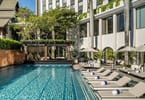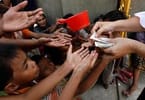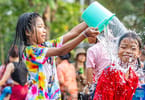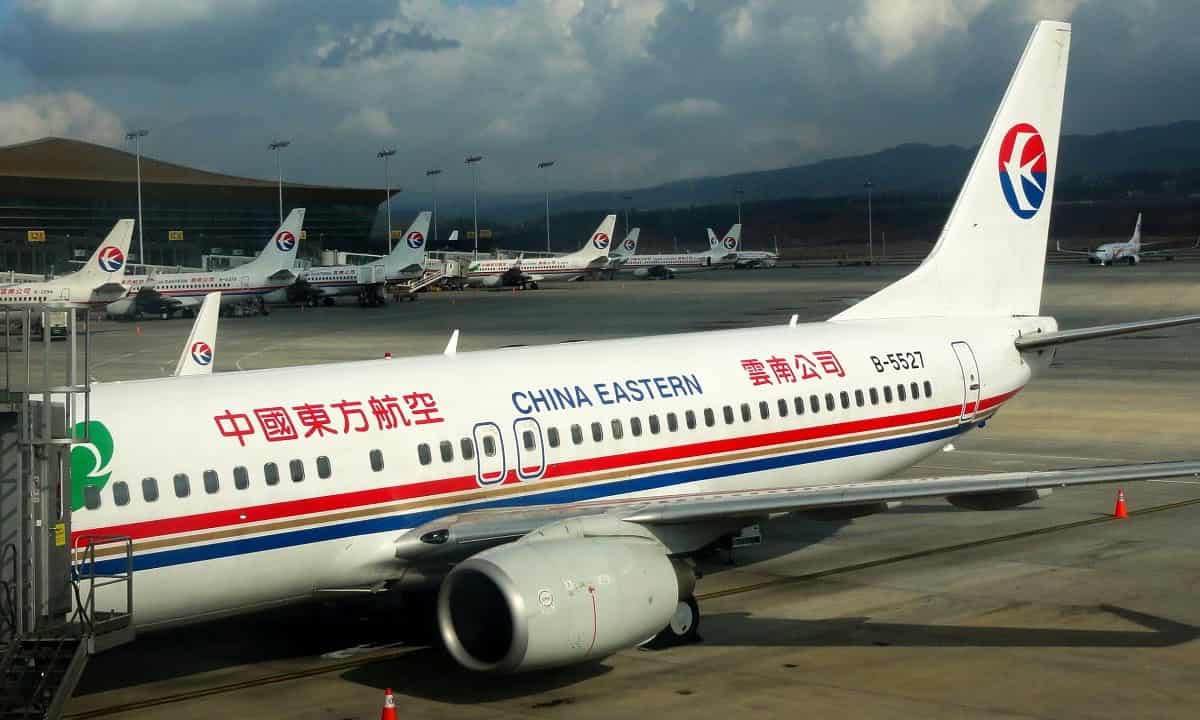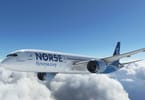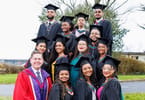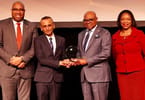With June’s arrival, tourism professionals should have begun to think about the summer months. In much of the world, these coming months are high season. These can also be months with high security needs. While no one can offer 100% safety and security, it behooves the travel and tourism professional to consider ideas for both creative marketing and security.
June then is the season not only to add special touches to your marketing but to also use your security program as a marketing device. To help you add some extra selling ability to your marketing program and to combine it with your security program, here are some old and some new ideas to consider:
- Determine what you mean by success. Setting realistic goals is essential to good marketing. Try to determine what your goals are for increased occupancy, trade shows, and networking. Set specific goals, such as: this year we will increase our overall occupancy rate by a specific percent, get media coverage on X number of new programs, or develop good contacts with Y number of people.
- Get a head start on marketing, especially at trade shows. Try to obtain as much information about who will be at a trade show prior its opening. What are those in attendance seeking? What will it take to inspire them to come to your community or attraction? Often you can determine this information simply by calling the organizers, or by asking others who have been to the trade show.
- Seek feedback. The more feedback you have from your guests, the better you are able to serve them. However, do not base this year’s promotions solely on last year’s data. If marketing is a war of words, then do not fight the next war merely on data from the last war. Develop new ideas, seek out trends, factor in changes in the economy or climatic conditions.
- Chat with customers/guests and not with your friends. Both at trade shows and at CVBs and attractions, too many people in our industry are more interested in each other than in our guests. It is not easy to get a client/guest to talk to you, do not turn that person off by making him/her wait. Never interrupt a personal conversation with a telephone call.
- Do follow-ups. After speaking to people, rank them as possible clients, then make sure that you call, email, or write to these people. Thank you notes are essential ways to indicate that you care and that you want the person’s business.
- Na-eme ihe n'eziokwu. Too often our marketing efforts are filled with half-truths. You may deceive someone once, but in the end every deception will come back to haunt you. Marketing is putting our best foot forward, it is never telling a non-truth.
- Lelee asọmpi gị. When traveling to other places, stay in a hotel that is not in your community, visit other place’s attractions, go to trade shows to learn who else is out there and take the time to chat with people.
- Do not be afraid to “co-market.” Often some of the best tourism marketing is done by combining products. Find allies in transportation companies, other communities, lodging chains, attraction development.
- Jide ọchị. Marketing is hard work but it should also be fun. The moment marketing becomes all work and no fun; we lose that sense of “joie de vivre” that makes people want to visit us in the first place. Never forget that in the end it is your passion for a place, attraction, community, hotel, mode of transportation, or commitment to good customer service that is the best form of marketing.
- Know that marketing is not enough. To be a successful industry you have to have a product to sell and people have to feel safe. In fact, no matter how good your marketing might be, without safety and security it may be money that is poorly spent. Before the onset of the summer consider the following security ideas.
- Consider your safety and security program as a marketing tool. Good safety and security is a way to make our guests not only feel comfortable, but it goes a long way toward preventing cancelations, keeps business on an even keel, reduces both employee and visitor anxiety, and permits our tourism industry to be a fun industry in which to work. Good customer service cannot occur when people are concerned about their safety.
- Have a list of security and safety professionals and consult with them. Preventing an accident is far less costly than dealing with it, after the tragedy has occurred. Most tourism professionals know little about the ins and outs of risk management. Consult with people who are experts before the high season takes place, during the busy period have these same experts assess your risk program, and then after the season has concluded, review your errors and what you did well.
- Never confuse good luck with good planning! Just because nothing has happened so far does not mean that you were well prepared. There are times that we are simply lucky, but luck changes. Only after you have taken every precaution should you hope to be lucky.
- Ask hard questions. For example ask yourself how good are our plans in case of each potential tragedy, is our management well trained and how would it react? What physical and psychological pitfalls might my locale be facing, do I have back-ups ready in case of an emergency?
- Have a clear communications plan ready to go into motion. Make sure communication specialists are part of your team. These people should be experts in internal site communication, how warnings will be sounded, do people know what to do, and also experts in dealing with the media. When dealing with the media: do you have one person who can speak for you? Make sure that that person has clear and precise information, and no matter what: never lie.
- Develop a safety and security overall analytical plan. Know what the risks are, where will robberies occur, what is the chance of a fire, could there be an issue of crowd control, then consider who would suffer in case of each danger actually occurring, how much would a tragedy cost you, how would you have to revise your marketing plan. Perhaps the greatest risk is taking the chance that nothing will occur. To have a good plan of action is not only a good business move but it is the only ethical way to run a travel and tourism business.
The Art of the Assessment Study
Assessment studies are to tourism what medical check-ups are to people. Every locale needs to have a full assessment study to determine both tourism strengths and weaknesses and to build a better industry and to avoid future problems.
The author, Dr. Peter Tarlow, is leading the SaferTourism program by eTN Corporation. Dr. Tarlow has been working for over 2 decades with hotels, tourism-oriented cities and countries, and both public and private security officers and police in the field of tourism security. Dr. Tarlow is a world-renowned expert in the field of tourism security and safety. For more information, visit safertourism.com.
IHE Ị GA-Ewepụ na edemede a:
- When traveling to other places, stay in a hotel that is not in your community, visit other place's attractions, go to trade shows to learn who else is out there and take the time to chat with people.
- Never forget that in the end it is your passion for a place, attraction, community, hotel, mode of transportation, or commitment to good customer service that is the best form of marketing.
- To be a successful industry you have to have a product to sell and people have to feel safe.





